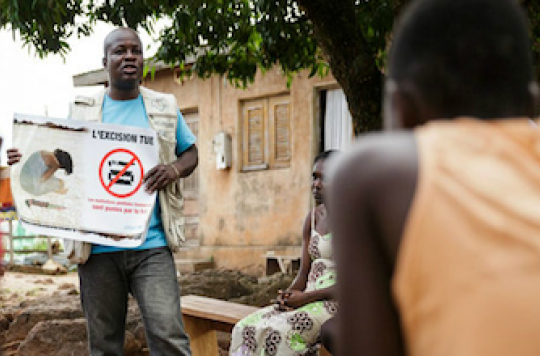According to a Unicef report, more than 125 million women and girls have undergone genital mutilation. 30 million girls are still at risk of excision in the next ten years.

Excision unfortunately still affects many women around the world. Indeed, according to a unicef report released on Monday, more than 125 million women are victims today and 30 million girls could still be in the next decade.
Female genital mutilation (FGM) are procedures that intentionally alter or injure a woman’s external genitalia for non-medical reasons. These practices are of no benefit to the health of girls and women. They can also cause severe hemorrhages and urinary problems, and subsequently cysts, infections, infertility, complications during childbirth, and increase the risk of death of the newborn.
As part of this report, the United Nations Children’s Fund has studied the evolution of these traditions in 29 countries in Africa and the Middle East, based on more than 70 surveys over 20 years.
And, with 98% of women between the ages of 15 and 49 who have been cut, Somalia is the country where the practice is most prevalent in the world. Next come Guinea with 96%, Djibouti with 93%, then Egypt with 91%. On the other hand, a glimmer of hope all the same in this study, excision is slowly starting to decline in some countries, especially in those where the prevalence of this practice is lower. This is the case, for example, in Kenya and Tanzania, where women aged 45 to 49 are three times more likely to have been cut than girls between 15 and 19, underlines Unicef.
Another example is Ghana, where 60% of women aged 40 and over have undergone excision, compared to 16% for adolescent girls. Perhaps a change in the mentality of the new generations? In addition, Benin,Iraq, and the Nigeria, have seen the prevalence of these teenage practices drop by half. Finally, the Burkina Faso (76% of prevalence) and Ethiopia (74%) also recorded a sharp decline.
For Geeta Rao Gupta, Deputy Executive Director of UNICEF, the solution to these practices lies in the voice of all those concerned, ” FGMs violate girls’ right to health, well-being and self-determination. What emerges from the report is that it is not enough to legislate. What is needed now is to allow women and girls, men and boys, to speak out forcefully and clearly to announce their desire to end this harmful practice.. ”
And precisely, these men could be the future actors of this desire for change. The UNICEF report concludes that not only are the majority of women and girls against this practice, but a significant number of men and boys are against it. In three countries (Guinea, Sierra Leone and Chad) more men than women want to end it, while FGM is often seen as an expression of patriarchal control over women.
.















